Freedom from Health Tyranny: The World Council for Health
Tess Lawrie
Most of you are aware that the WHO, the World Health Organization, is merely the marketing arm for Big Pharma, and a partner with other globalist organizations such as the WEF in their campaign to establish global control over all of us.
But there is an alternative. Founded in 2020, the World Council for Health is not a political organization in any way. Where the WHO is focused on dictating health policies to its 194 member states, the World Council for Health is entirely an advisory organization, providing absolutely free health advice from some of the top doctors and scientists in the world.
From her home in the UK, I am joined today by Dr. Tess Lawrie, a co-founder of the WCH. Dr. Lawrie is a world class researcher and expert in evidence based scientific analysis.
In fact, Dr. Lawrie is uniquely qualified to discuss the differences between the World Council for Health and the WHO, as she worked for the WHO as a highly respected consultant for almost 10 years, until she voluntarily left in 2021 after it became clear that the WHO had no interest in promoting or protecting health.
In this full free interview, Dr. Lawrie explains how, unlike the WHO, which is now calling itself a ‘health security’ organization, double speak for health tyrants, the WCH is a health sovereignty organization, providing expert advice to people and governments around the world from some of the world’s top doctors and scientists.
Advice that is effective, health focused and that truly has the best interests of the people at heart, rather than serving the profitmongering interests of Big Pharma.
LINKS:
1 Comments
Leave a Comment Cancel Reply
You must be logged in to post a comment.
Will Dove 00:00 Most of you are aware of the WHO, the World Health Organization, is merely the marketing arm for Big Pharma, and a partner with other globalist organizations such as the WEF in their campaign to establish global control over all of us. But there is an alternative. Founded in 2020, the World Council for Health is not a political organization in any way, where the WHO is focused on dictating health policies to its 194 member states. The World Council for Health is entirely an advisory organization, providing absolutely free health advice from some of the top doctors and scientists in the world. Will Dove 00:46 From her home in the UK, I'm joined today by Dr. Tess Lawrie, a co-founder of the World Council for Health. Dr. Lawrie is a world class researcher and expert in evidence-based scientific analysis. In fact, Dr. Lawrie is uniquely qualified to discuss the differences between the World Council for Health and the WHO, as she worked for the WHO as a highly respected consultant for almost 10 years, until she voluntarily left in 2021 after it became clear that the WHO had no interest in promoting or protecting health. Will Dove 01:25 In this full free interview, Dr. Lawrie explains how, unlike the WHO, which is now calling itself a health security organization that will speak for health tyrants. The WCH, is a health sovereignty organization, providing expert advice to people and governments around the world, from some of the world's top doctors and scientists. Advice that is effective, health focused, and that truly has the best interests of the people at heart, rather than serving the profit mongering interests of Big Pharma. Will Dove 02:12 Tess, it's a pleasure to have you back on the show. Dr. Tess Lawrie 02:15 Thanks for having me, Will. I'm looking forward to chatting with you. Will Dove 02:18 And it hasn't been a while since I've given my viewers an update on the World Council for Health. You were one of the co-founders. You're very, very active with the organization. But I think because my audience has expanded since the last time I talked to one of the co-founders. We should probably just start from scratch, because there's probably a lot of people who are gonna see this interview - who may never have heard of the World Council for Health. And it's an extremely important organization, what you folks are doing. So Tess to start it off with, "What is the World Council for Health?", "How did it get started?", and "What are its goals?". Dr. Tess Lawrie 02:50 Well, the World Council for Health is a health advocacy organization. We are formed of coalition partners around the world. So we have more than 220 coalition partner organizations and 55 countries. And we are on a mission to empower house freedom and sovereignty. So our vision is really that everybody in the full world should have everything they need, including the information and resources they need to maintain their own health, the health of their families, the health of their communities, and the health of their environments. Dr. Tess Lawrie 03:21 And our mission, and the way in which we wish to achieve this vision, in achieving this vision is really educating, raising awareness about the root cause of disease, rather than the current model of which is to just treat disease with pills and drugs. There's no interest. So it's about raising awareness of the root cause of disease. But not only of disease, raising awareness of sovereignty of other inalienable rights, because particularly I would say, in Western worlds, we've completely forgotten what our human rights are. But I think it's felt like it hasn't really been under threat. Well, it certainly is now. So it's really raising awareness, teaching people about the inalienable human rights, and also establishing new systems - establishing a better way forward. Dr. Tess Lawrie 04:13 So our slogan is, "There's a better way." And this is really a modus operandi highlighting that, "Yes. What's going on in the last few years is rather frightening for some." And just raising awareness that there are options - we do have alternatives and there's a better way of doing things than this dystopian route that's on offer at the moment or an imposition. Will Dove 04:39 Yes. Now you have a rather unique perspective, because what's gonna be going through the minds of people who are listening to you right now who perhaps have never heard of the World Council for Health. They're going to be asking, "Well, isn't that what the World Health Organization, the WHO, does?" And you're in a very unique position to point out the differences because from 2012 to 2021, you worked for the WHO as a consultant, so you understand their workings. And of course, you're the co-founder of World Council for Health. So please explain the difference between these two organizations. Dr. Tess Lawrie 05:10 Well, the World Health Organization is currently focused on health security. Now, this is a new term that's suddenly being bandied about. And I think many -- perhaps the Canadian agency is now called the Health Security Agency, the United Kingdom Agency, which used to be called Public Health England, is now called UK Health Security. So there's this term Health Security and it's basically feeds into the whole fear around pandemics, or COVID, or infections. And so suddenly, disease is something to be terribly fearful of. And so our approach is health sovereignty. So there's a one-size-fits-all approach. Ours is an individual health approach. If you have a healthy individual, you have a healthy family, a healthy community, healthy society, healthy country, and a healthy world. Whereas the WHO is the inverse. They want a one-size-fits-all approach where the individual is sacrificed to the whole, the well being of the individual is sacrificed to the whole within a one-size-fits-all. Dr. Tess Lawrie 06:16 So the WHO is a massive bureaucratic organization that requires huge amounts of funding, right? When COVID was declared by them, they immediately launched this ACT Accelerator program, calling for 38 billion in donations. And so this was called the ACT Accelerator -- "Access to COVID Tools Accelerator". So they immediately were demanding or soliciting this huge amount of money from countries and other organizations to fund their COVID approach. They didn't look at safe, effective treatments, early treatments and say, "Oh, we've got all these safe-all treatments, established treatments that costs cents." And if we could be recommending to people but immediately started trying to solicit this huge amount of money. Dr. Tess Lawrie 07:07 Now, this is really important because the WHO only controls 20% of its budget. So the money that comes in to run the organization, 80% of its budget, or the money that it spends, is actually from voluntary contributions from countries and foundations like the Bill Gates Foundation, and pharmaceutical companies. And they have their own agenda to push because who pays the piper calls the tune. And that's how those voluntary donations work, which is why we've seen the World Health Organization over a period of time become, what some might say, is a World Vaccine Organization. They're currently promoting 100-Day Vaccine. So vaccines that can be made in 100 days, I'm afraid, my experience as a research and evidences that synthesize it, you cannot develop a safe vaccine in 100 days, but they have on them, on their plans, to develop 500 by 2030. And that sounds absurd, but it's actually on one of their posters for the immunization campaign from last year. Dr. Tess Lawrie 08:15 So they are advertising that they will have 500 vaccines by 2030. And I'm sure many people also are aware that they're also targeting a new pandemic called Pandemic X, which could be anything and they seem to be already developing a vaccine for this. So one has to just consider all of this totally absurd. And you can see how the tail is wagging the dog, or that's one way of putting it. The other way is to say that what they're creating is a self-perpetuating pandemic industry, where they call a pandemic and then they call for money to develop vaccines and tests all of those sorts of things. And then they get to enforce it. Dr. Tess Lawrie 09:01 Of course I haven't got to the better but these new WHO Pandemic Treaty or a Chord Instrumental CA2+ and the amendments to the International Health Regulations, but the WHO is in the process or the laws that control the WHO, which are certain nation states, military departments of the US, and billionaires, they seek to give the WHO legally binding power, expanding the power of the WHO and making it legally binding over all countries in the event of another pandemic, or what's called a fake, which is a public health emergency of international concern. Dr. Tess Lawrie 09:48 Now I'm happy to speak more. I mean, I can speak for ages on this really well because you know the WHO Director General did declare another fake in July 2022. It was the monkey pox fake and I suspect that the payment went very quickly. But if people do recall, to invest so much power in an unelected, unaccountable individual life, the Director General of the WHO just seems you know, it's really countered to democracy and has a huge threat to our individual health and sovereignty as well as national sovereignty. Will Dove 10:24 Yeah. So now, this has made clear the WHO is very much a political organization, it's under the UN, it's allied with the WEF. When they say health security, what they mean is control. The WCH, however talks about health sovereignty. You're not trying to control anyone, you're just doing your best to give good advice. So, we talked about the $38 billion, that they were raising, just huge amounts of money that come from Big Pharma. And as you pointed out, 80% of that Big Pharma gets to tell them what to do with it. There, I think none of my viewers are under any illusions that the WHO was really just the marketing arm for Big Pharma, it's reached that point. And not just that, but they're trying to have this extreme amount of political control around the world so that they can force these things on people. Will Dove 11:21 So please explain a little more detail to WCH's approach to providing health advice to countries around the world. You've talked about having over 200 partnership organizations. I know the last time that I spoke with Shabnam Palesa Mohamed, that I believe there was something like 90+ delegates or representatives from various countries around the world who were members of the WCH, and I guess what I'm wanting to get out there is for people who haven't heard of you, this is not a small organization. You've made huge advances in the last few years. Dr. Tess Lawrie 11:56 Yes, so we are completely the opposite. We are about empowering the individual. And we currently have a strategy to counter this massive power grab, a new world order, because it's the wave fund and those controlling the WHO. I think to focus on the WHO is looking at the small fry, and the WHO is just a policy distributor. The policy makers are actually the Rockefellers, the Chatham House, the WEF, and so on. And then of course, it's the Bank of International Settlements, that's controlling everything. So, let us not be under the illusion that it's the WHO, that it's the bankers that are actually making this massive power grab right now. And they want to rule the world because I think they see the system is falling apart very quickly, and if they don't jump in. Dr. Tess Lawrie 12:52 So the World Council for Health is the way -- so we're not just an advisory in actual fact -- we are advising people to take risks, to take control of their health and learn. So we're not imposing anything. We have policies and legal briefs. And we have guidance on vaccines, and on cancer, on other aspects of health and how to detox. But our approach is very broad-based. And we draw on the wealth of resources and expertise in among our partners. So if we don't have the information on measles, safe but to wait, thus, because there's an organization that focuses on childhood vaccination. And so they have the expertise to inform our work, and we share that. So it's about sharing that we share the information from our EMF partners. They are partners that I finally have high grade expertise in radiofrequency radiation, and that's -- we're not inventing things and putting it all together. We are really messengers for the best work that's coming out of our partner organizations. Will, we have media organizations, too, that are partners with us. So it's about really providing a platform and a voice and messaging, the best work that's coming out from everywhere. Dr. Tess Lawrie 13:54 And when it comes to the country council. So we have established 29 country councils around the world. So there are various stages of this activation, and then not all of them have got websites up or anything. They're at the formation stage. They've got steering committees. They're putting their policies and focus together because again, they're autonomous country councils. What we want to do is empower these country councils to actually take the stand where their country authorities have let the people down. We are empowering these autonomous country councils to spring up and develop themselves in collaboration with the organizations that are on this better way path to do what we're doing. Dr. Tess Lawrie 14:34 So we basically, have this model where we empower others, and they empower others, and they empower others, and we just decentralize. So this process of expansion that we are undergoing right now is really about decentralization. And by basically giving away everything, we form a solidarity and collaborate with other countries. So the other role of the country councils, apart from continuing the mission of empowering health, freedom, and sovereignty, is to collaborate in the event of future emergencies, or health crises, or fakes, or whatever comes next, because we feel there are things coming. And we will need some international solidarity and advice and networking to overcome these challenges. Because there are this expertise in Asia that we don't have in the West, and there's expertise in South America, and there's expertise from Africa, and Oceania. Dr. Tess Lawrie 16:08 So it's about pooling our resources and our advice, and not actually imposing anything, but just being in a position to say to Canadians, "Look, this is working in the Philippines. You might want to try it." This is working. And so, we'll be able to collate the information and also present solidarity against unlawful and illegitimate measures that are taken against us and restore law and order internationally. So, it's amazing what we can do when we work together. Will Dove 16:47 I think what you just mentioned is an extremely important concept, Tess, because as we've been talking about, the WHO is all about global control. They're trying to get everybody to do exactly the same thing, exactly the same time. But with the WCH's approach, member countries who are paying attention to the advisors coming, they get to choose for themselves, what they're going to do. And you just made your example, "Okay, look at what they're doing, say in the Philippines, about this." And it seems to be working. And when you have that sort of network going on, you can have countries that are trying different approaches. And it doesn't take very long to see, "Well, that's working. That one's not." And so everybody else can look at that and go, "Okay, well, let's do what they're doing." Rather than this WHO control approach of, everybody has to do the same thing. So there's no control groups. Dr. Tess Lawrie 17:34 I think the other big difference between us and the WHO is the paperwork. They have reams and reams of paperwork, and legal documents. All of these sorts of things that nobody ever reads. So this, I don't know, if you've seen this document, it's a WHO document - it's the compilations of amendments to the International Health Regulations. So I'm just gonna flip through, because we've highlighted the changes in red. Will Dove 18:06 Yes and I have seen it. James Rogowski sent that to me, and it's a massive document. And of course, they think the people -- to keep in mind is that they didn't want the public to see those. Dr. Tess Lawrie 18:18 I haven't yet made one politician actually read it. But what they do, what the politicians do, say around the world, is this doesn't affect sovereignty, we'd never give away country sovereignty, I can guarantee you what's written in this document gives away country sovereignty, and not just country sovereignty, but everybody's individual sovereignty, it mandates things for us. And it's supposedly legally binding. And there's 168 or more, I gave about 168, I've got counted 168 "shall"s in this document. And "shall" is obligatory. You shall do this. And the word "shall" has replaced other words that could have said "may" or "should" or "will". But it's "shall" now in this new document. So, this is just steam right in your head. Will Dove 19:08 That's an important point, Tess. And I've spoken to enough lawyers over the last few years to know. "Shall" is exactly that, in a legal sense, that's obligatory. If they sign on to that, to those International Health Regulations. What they're saying is, if it says, "You shall do this.", it means you're going to do it. You have to do it. Dr. Tess Lawrie 19:28 Now there's many, I want to show you our purge. But first I want to say, in the health and freedom movement or health and sovereignty movement, there's a lot of fragmentation and a lot of sort of in-fighting and people feeling like, if you don't believe this entire narrative, then we can't work with you or people often ask, like, "How do we manage to collaborate with all these different groups?" So they're all on a different path, they all have a different focus. How did we do it? Dr. Tess Lawrie 20:04 We do it because in 2022, we held a conference called the Better Way Conference. And the output of that conference, we distilled all the information that had come forward, because it was a very solutions-focused conference, we talked about science, we talked about health, we talked about the consequences of the COVID vaccines, we talked about law and the media, technology, and the environment. And when we distilled everything down, because we'd said, we would produce a document at the end of the conference about what had been said. It was just a one page document with seven principles on it. It's called the Better Way Charter. And it's basically principles on how we all get along together in this better way. Principle one is we act and honor and do no harm. We do our best. We make mistakes, everybody does. But we act in honor and we do no harm. We are free. Well, we have free will. And with our free will, we are responsible for our choices and decisions. Dr. Tess Lawrie 21:09 We are part of nature. We need nature to be well, but we are absolutely part of nature. We are spiritual, we actually need a life of purpose and meaning. Convenience doesn't suit us. Convenience makes us sick. So we are spiritual, whether we like it or not, whether we're part of a formal religion or not. We are fundamentally spiritual beings. And we thrive together. We don't thrive in little boxes, with masks on separate from each other in nursing homes, in institutions. We actually thrive in community talking to each other and being outdoors and that sort of thing. We value different perspectives. Dr. Tess Lawrie 21:52 So we like going down to the pub in the UK, people don't we? They used to and talk about things and share their views, and recognizing we don't have to all agree on things. We actually use somebody who says something, you take it home, you think about it, and you change your view, though you've or maybe you don't change your view, but you can live with it, because you recognize we're all different, we all have different perspectives, and we shouldn't impose our perspectives on other people. And because nobody really knows what's the truth about many things these days. I mean, we all have to navigate with an internal compass about between right and wrong. And, that's our conscience. But we can't presume to speak for other people, know what other people are thinking. Dr. Tess Lawrie 22:40 And then finally, the Principle Seven is we use technology with discernment. So obviously, technology is very useful, but it's incredibly dangerous. And incredibly, it takes our power away. Because I mean, you would have seen with Wi-Fi. I'm not sure if you're aware, but you know, there's increased rollout with Wi-Fi and frequency radiation and surveillance is all being used to enslave us and exploit us further. So it's happening very quickly. And, so we really need to put our foot down and use technology with discernment. Dr. Tess Lawrie 23:19 So overarching those seven principles is the foundation stone, which is that we do not tolerate the violation of inalienable rights and freedoms. That's freedom of speech, freedom of apology, bodily autonomy, freedom to travel, we do not tolerate it. And we do not tolerate profit, power, and influence coming before the well-being of people and the planet. Now, I know people might say, "Well, you're just a woman or whatever, or they're so strong, how do we not tolerate these things?" Well, we take a stand, and we do not tolerate it. And we do it one by one. We do not tolerate these things. We want a better world for our children. And this is how we do it. So this is a little document I had, perhaps you can reference it, it's on the website. It's been translated into 30 languages or more. And when we go country to country to say to our organizations there, and you live with these principles, and formal and autonomous country council to collaborate with other countries. They look at those principles. And they say, yes, we can live with those, you know, they're universal. Will Dove 24:25 Yes. And I think that's a very important point here, too, for people to remember is that next time, the globalist hit us with another pandemic, or whatever it is. It only takes one country who says we're not going to follow the WHO. We're going to follow the World Council for Health. And within a few weeks, possibly, the rest of the world is looking at them going, "Well, they're doing fine." There's no problems there. Everything else is falling apart. And I really believe it. Will Dove 24:58 You know, when I've had the privilege to be in attendance at quite a number of your meetings, I can tell people that everything you're saying is the absolute honest truth. Because I've sat there and I've listened to these meetings, and I've listened to the debates. And one of the things that the World Health Organization and their ilk don't want is they don't want scientific debate. They want to dictate, and if you try to disagree with them, you're gonna be censored, you're gonna be cancelled. I've sat there in World Council for Health meetings, and I've listened to these brilliant scientists present their data. And other scientists, doctors, and attendants will ask very difficult questions about it. You're not attacking them, but saying, "What did you consider this? Could you look at this?" And they have that debate. There is questions. Will Dove 25:46 And so all we need that is that scenario, where once again, there's a health crisis. And we've got one, maybe two countries that listen to the WCH and they're doing fine. And everywhere else is falling apart. And I don't think it's going to be very long before a lot of those other countries are going to look at the ones that are following the WCH recommendations and go, "Why are we listening to the WHO?" And I think something is very important for those countries to remember is it doesn't matter if they signed on to that international health treaty. There's no enforcement arm. If a country, say like Canada, not this is going to happen here. But if a country simply said, "You know what, we're out, we're not doing it." Well, what are they gonna do about it? Dr. Tess Lawrie 26:33 You know what, I agree with you. The only problem is - what we have is our governments have been corrupted around the world. Our governments have been infiltrated. So they are the enforcement arm of this new world order. Our governments are the enforcers above them, sets the policy distributors, which are others with UN and WHO and so on, and above them are these think tanks, the circle think tanks, these dystopian, Great Reset zealots, one could say. So, our governments are not in control of anything. They are just puppets. And it's happened by slight of hand around the world. It's not just Canada. It's around the world. And so, it may well be that things get very uncomfortable at home. But there's international solidarity in this. And people must take heart in that and realize that they're not alone, and you cannot comply your way out of tyranny. Dr. Tess Lawrie 27:41 You cannot react your way and just get angry every time something else happens. And you send that on to somebody else and make them upset and angry, that's not gonna help either. We have to create our way out of tyranny, we have to be creative now. The one thing that the WHO and all of those, that Klaus Schwab has on, their Bill Gates, they're a real somber bunch. They can't make a joke, and they can't sing a song. And they can't write a beautiful story that either that there's a lack of love and joy. We have in that dystopian plan that they have, the Abunda Harare, all of those sort of front figures. So what we have really is we have our creativity and one of the things that World Council for Health does and is so fortunate with is that we really bring art into science and into our work. Dr. Tess Lawrie 28:37 So, we collaborate with musicians, with poets, creative writers, storytelling, and in this way, we really believe that we, as the people have and will have the upper hand -- I don't really like upper hand lower hand -- we will create a better future, we will create a better way. We just need to chin up and put a smile on our faces. See this as an opportunity because my goodness, haven't we been lined? Haven't we been deceived the last decades, I can't believe I got to my age and only found out all of this stuff now about how we've been manipulated and nudged and exploited. So, this really is we need to be grateful that it's a beginning of something new and wonderful. And we do have some difficult times to go through. Will Dove 29:30 Yeah, we do. And just as a final comment, though, on what I was talking about with various said countries, not necessarily. We do know from 2020-2021, there were a few countries in the world that didn't follow the narrative, and of course, did absolutely fine. One example of governments that may not be completely on board, my own province of Alberta here in Canada. A little over a year ago, we elected a new Premier. And Danielle Smith is a bit conservative. She's not perfect, of course, lady. She's a politician like any of them. But one of the very first thing she did after she got into office was to pass legislation to make it illegal to force schoolchildren to wear masks. Now, what does that do when the next pandemic comes along, and most provinces, countries, the kids are all having to wear masks. And they look at Alberta and go 75% of them aren't wearing masks. And there's no higher rate of illness here than there is anywhere else. Will Dove 30:33 And so I think that where we're going to see that sort of thing happening is we're gonna have these isolated cases of jurisdictions, political areas that are not following along with the WHO narrative, and are listening to a World Council for Health. And people looking at and they'll, say, "Well, everything's fine there." But you know what, I'd like to move on to now, because the last thing I would want to do, I mean you were just talking about artists and musicians. And that's important because I myself, a mere proponent of Whole Health, there's a lot more to health than just the physical. However, the World Council for Health has some extremely qualified doctors and scientists, you yourself are expert in evidence-based analysis. Let's talk about some of the other people who were involved with the World Council for Health. Dr. Tess Lawrie 31:18 Well, among our partner organizations, we have FLCCC, we have Children's Health Defense, we have Peter McCullough, who's our Chief Scientific Adviser. Dr. Peter McCullough I'm sure you know of him, and you'll view this. So in every country, we're seeing the best of the best, you have no conflicts of interest, and have great integrity, stepping up to say this is not right and putting their careers on the line to support a new way forward. We have, in each country on the steering committee, there are a number of really wonderful people and many have been supporting a more holistic approach to health, too. So for example, in the UK, we have two doctors, Dr. Sarah Myhill and Dr. Jayne Donegan, who basically were almost -- they've been fighting the General Medical Council for such a long time to get more people centered, an individualized approach to health rather than this protocol driven, pharmaceutical driven type of health care. So they've stepped up. In fact, we haven't announced this yet so I probably shouldn't be mentioning that. But we have top cardiologists in our steering committees, we have experts in nutritional health, we have experts in orthomolecular medicine in Asia, and that is really nutritional medicine. Dr. Tess Lawrie 32:57 So it's really taking things back to preventing disease rather than having to allowing people to get sick and then need treatment. I think many people take better care of their cars than they do of themselves. And so, it's really take to change the mindset. But yeah, really amazing experts. I don't know if you've seen any of our expert panels, but we really draw on the top experts in these. The DNA contamination, for example, we had Kevin McKernan, we had Sucharit Bhakdi, Professor Brigitte König from Germany, and others who are bringing in not only scientific and medical expertise, but also legal expertise, because this is really needed at this time. Because when these policies and laws are being promulgated so quickly, and there is all this fraud going on as well around the COVID vaccine trials and people need solutions. So they need legal briefs. We are helping to provide that and be able to draw on the expertise. And that's not because we are commanding huge amounts of money and we are able to pay all these people. That's because everybody comes in with their skill and their gift, the gift of their expertise. Dr. Tess Lawrie 34:29 Contrary to the WHO, we don't need a lot of money. We do need planning to run. We do need to remunerate. You cannot run an organization on volunteers, especially something that has huge ambitions that we have, which is to empower each and every individual in the world. So it's not that but it's just that by decentralizing, when decentralizes one's financial needs as well. And so, for example, all these councils, World Council Health Japan, World Council Health Canada, is almost there just by the way. And it's about decentralizing. So World Council for Health Alberta will be there too. And they will be one day in WCH Ontario. It means that the councils themselves can fundraise for themselves, can support themselves, just like they are deciding whether or not to use our policies or make their own or adapt what we have. They are totally independent from a funding perspective. And, yeah, so it's a totally different model, the same with our Better Way conferences. So, in a way, we've created these brands, and we share them. And we decentralize them so that others can do the same. And so this year, we're holding -- we've held the Better Way Conference the last two years, and they're hugely successful. And the same people would have been asking us when are we doing one this year. Well, we're not doing it the same as we did it last year. Dr. Tess Lawrie 36:02 This year, we're decentralizing the Better Way events as well, so that our country councils can hold a Malaysian Better Way Conference, and we're doing the Detox Fairs as well, because we see the need this year is really for people, so we keep saying take control of your health, while people are saying, well, "How do we do that?" So we're saying, "Well, everybody needs to detox." And there's this perception that people who have been vaccinated are the only ones who need to detox with. Everybody needs to detox. And so we're putting together these fairs. The first one is in June this year in the UK, but we are in discussions to have one in Florida in August, tentatively scheduled for August, with our World Council for Health Florida partner, that country council that is almost activated in the process of so by sharing our resources and what I think in the corporate world is called intellectual property. While we just share it all. And then we trust that the core team will remain supported as we move forward. So, we have no conflict of interest. Yeah. Will Dove 37:13 You freely share all of this information. And just as an interesting comment, I was privileged to be in that meeting, where Dr. McKernan presented his findings, I have to admit a non-scientist, about half of what he said went right over my head, but I was able to catch enough of it to understand the significance of it. But all of this information that you've been talking about, all this health advice, the detox, everything, it's all freely available on the worldcouncilforhealth.org website. Anybody can go there and access this information. Will Dove 37:17 And I'd like to talk just, and I don't want to embarrass you, Tess, but I think it's very important for people to understand the integrity of the people who were involved. You yourself, have taken a massive pay cut to be involved with this. Dr. Mark Trozzi, right here in Canada, who's one of the members of the steering committee, he's lost everything. There's a lot of people in the World Council for Health who are like that, unlike the WHO, which is funded by Big Pharma, marketing arm for Big Pharma, and there's billions and billions of dollars. The vast majority of the people who are working for the World Council for Health are doing this on a volunteer basis. And yes, taking financial penalties for doing that. Please speak about that for just a couple of minutes. Dr. Tess Lawrie 38:26 Yes, well, many of those who start on the steering committees around the world as they're starting on a voluntary basis, and many of them have stepped away from their careers to do so. It's just that important. And I think, I don't want to be a downer, but humanity is in grave danger. That is an understatement. There's evidence coming out every day, that these genetic injections are far more harmful than we could ever know. Right? Right now, we are anticipating a really dire situation potentially, in the next few years. And so we are having with people with great integrity, stepping up to say, "I will leave my career. I will step into the unknown with you to help on this project, to save the world." That's basically, "Well, let's save the world." We're not trying to save the world, we're just creating an alternative systems that can ensure the survival of humanity. Dr. Tess Lawrie 39:29 So yes, everybody in our organization is a servant leader. We are in service. And all the people who work with the way that our organization is constructed is not hierarchical. It's non-hierarchical. So it's the new way forward. It's how we all work together as equals. We all earn the same, our time's worth the same. And we all, we do what we do because we have the emotional reward. That way, it has been wonderful to watch everybody blossom in this organization, because when people come in, they almost expect to be given instructions and orders or whatever, and to follow them. Whereas what we do is we try and find that niche role for everybody that really brings out their talents. Because we all so uniquely talented, and we all here with a gift of uniqueness and individuality. And if that is about to prosper, then, we just create the most amazing autonomous and sovereign individuals, which is where we would like to see everybody going. And so we're very much finding our way with us and leading by example, in that developing the sovereignty within ourselves so that we can help others be sovereign. Will Dove 40:50 Yes, and the WCH, I personally see it not just as a medical organization and advisory organization. It's an organization of hope. People watching this, who may be vaccinated, may be suffering from those adverse reactions, a lot of them don't realize there are effective treatments. And all of that information is freely available at the World Council for Health. Dr. Tess Lawrie 41:17 I would like to address that because I didn't want to give people false hope either. In terms of the vaccines, in fact, some people say don't call them vaccines, we will do but at least it's a term that people do relate to, because they are genetic injections. Now, this is a totally new technology. So it would be false for me to say we know how to treat this conditions that are coming out. But what I can say is a World Council for Health is compiling protocols that are coming from all around the world, from our partners, and we are updating and refreshing all the time, we now producing a detox booklet to go with our detox fair. And what we are doing is inviting people to help others. By trying these protocols, and then feeding back either to vaccine injured organizations or there are people that studies being undertaken. So there's a group called the control group, which used to be the vax control group, but they have a database and you can sign up to submit your data as well. And then on a monthly or bimonthly or quarterly, you can submit your symptoms and the end of the protocol that you've tried. Dr. Tess Lawrie 42:36 So it's a way of empowering everybody to be helpful at this time. And I know there many people, if you're ill, it's very difficult to be helpful. So I'm not saying, you should be being helpful. But for all those people who have been vaccinated, we don't know who's gonna -- who might get sick and who won't. So it would be enormously helpful for everybody to be trying detox and seeing what helps and feeding that information back into this people-lead research so that we can find the solutions ourselves. And this database is something that we would as individuals be able to access. So we could then go and look and say, "Well, this looks like that helped that person who had some of the symptoms to me, so I'm gonna try that." So it's a far more individualized approach. But the thing is that these protocols are not prescription drugs. I think the one thing that's clear is that Big Pharma's remedies are pretty toxic. And so it's nature-based remedies that are likely to hold the solution for most people who wish to get -- Will Dove 43:50 I had a pretty long discussion with Dr. McCullough about that just a few months ago, and I was well, my intent and to give people the idea that these protocols will fix all of the adverse side effects. But certainly, we are seeing a lot of people who are using these protocols and saying that they are seeing improvements. So it's obviously working in the right direction. And as you say, the doctors and scientists with World Council for Health are constantly working at improving these and taking that feedback and finding yet more effective treatments. So for people out there who may not have been aware that there are protocols out there, and as you say, they're not prescription drugs. These are things anybody can do with natural health products, and get some relief from those adverse effects. Will Dove 43:50 I wanted to move on. And I'm sure - that I appreciate your time, and sure you were busy. So I don't want to take up too much more of your time, Tess. But I wanted to talk briefly before we end today about safe blood, because of course, and when you're talking about detox, it's not just for the vaxxed, there's a lot of unvaccinated people who are being affected by shedding. And this is now well-proven science. We know the shedding is happening. We know it's causing problems for people who are unvaccinated who are often heavily exposed to the vaxxed. So safe blood, I want you to talk about that. Dr. Tess Lawrie 45:07 Yeah. So I don't know if my opinion is a bit controversial on this because I genuinely do not think that all this emphasis on safe blood is important. I think it's something that polarizes people, thinking, "Oh, I must know how to get safe blood water. If I need blood, and I can't get it." The likelihood of anyone needing blood in their lifetime is very, very slim. Most people, if you're in a room full of 70 year olds, and you ask them if they'd ever needed blood, maybe out of 100 people, you get three people put their hands up. Dr. Tess Lawrie 45:41 And I trained in South Africa. And during a period when HIV was highly prevalent. I was working in obstetrics. Thirty percent of the women who were pregnant in our neighborhoods were HIV positive. And so we didn't transfuse very easily, we would just charge women with very low hemoglobins relative to what might be -- one might have previously reached for a blood transfusion and just allowed with natural supplements and things to build the blood back up. So it is possible for us to lose a lot of blood without needing a blood transfusion and to actually rest up for a while with a low hemoglobin without needing a blood transfusions. Dr. Tess Lawrie 46:34 I think there's an over emphasis on the safe blood issue. I know there are people who need regular transfusion. So, I'm not diminishing that need. But it's not the majority of the population that needs to worry about getting safe blood there. And as you say, it's very difficult to know whose blood would really be safe anyway. They might not be vaccinated, but they might be in a relationship with somebody who is, as you say about shedding whether that would impact the quality of blood. So it's really, I think, an issue just to be avoided, and I'm gonna keep avoiding it. No one else has to avoid it. I just feel it's not a priority. The most important thing is we work together, we're all in this together, whether we like it or not, it's time to come to that conclusion. And we're all in this together. And we need to work together to create a better way. Will Dove 47:35 Yes, and as you say Tess, we are all in this together. It's funny that that's the phrase that got used a lot by the globalists during the flows of pandemics. But truly, it's our side, it's all in this together. If we don't work together, if we don't support each other, given our very limited resources, it's going to be much more difficult to protect everyone and to give people good information. Final question Tess, how can people watching this interview support with the World Council for Health is doing? Dr. Tess Lawrie 48:05 Well, and while we wouldn't hope there will be organizations that would want to partner with us and work towards establishing World Council for Health. Our chapters or states depending with, it could be a state, it could be a country, or it could even be a community, so it's really breaking it right down. If you can volunteer, you can email info@worldcouncilforhealth.org and join our list of volunteers. We do all sorts of exciting things. Community outreach with flags saying, ask me about vaccine injury, ask me about detox, ask me about the WHO, and people love coming up and asking questions, this queues of people now, which is a wonderful change. And for the team, you can watch our work so you can participate. We have a Monday, live-streamed meeting. It's been going since the get go, and all manner of interesting topics covered as well as a news update on what's going on in Science and what's going on in the world, Better Way News, it's called, so much far better than watching the TV. Dr. Tess Lawrie 49:14 You can download our resources and share those at your neighborhoods. The resources like the detox guide, I've got one here. You can share our policy briefs. I've got one of those here. So that's the one on the WHO, we've got one on unregulated digitalization. And we also have a campaign page called thegreatfreeset.org. So The Great Free Set is the counter to The Great Reset and it's really little challenges. You'll see the wonderful graphics and cartoons that will challenge us to help you on your journey to becoming sovereign and reducing your dependence on big operations. So all of that, and of course, donations are very welcome because we are people-funded. And the more support we have, the more work we can do because we're on a mission. Will Dove 50:15 Right. Tess, thank you so much for your time for this interview today. Folks, just to let you know how very busy Dr. Lawrie is. It took her several weeks to clear the small amount of time for this interview. So Tess, once again, thank you so much for your time, and for the extremely important work that the World Council for Health is doing. Dr. Tess Lawrie 50:33 Well thank you, Will, for your time and the great work you're doing in getting the message out.

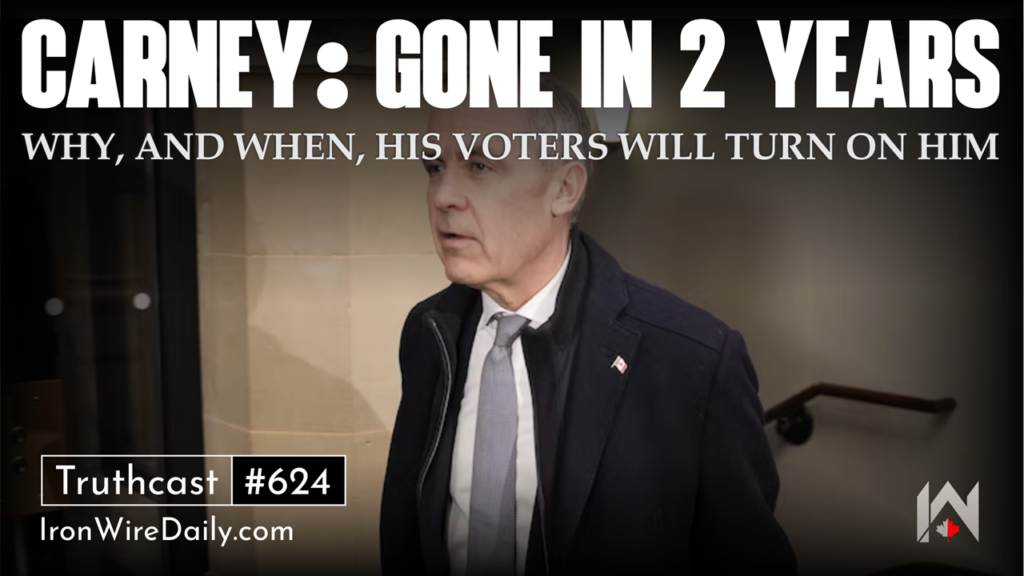
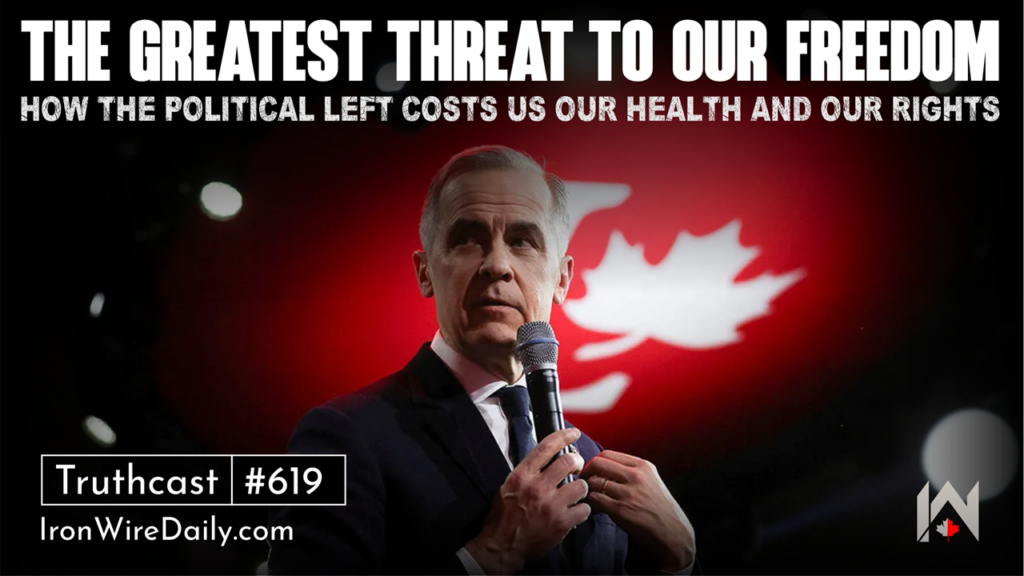

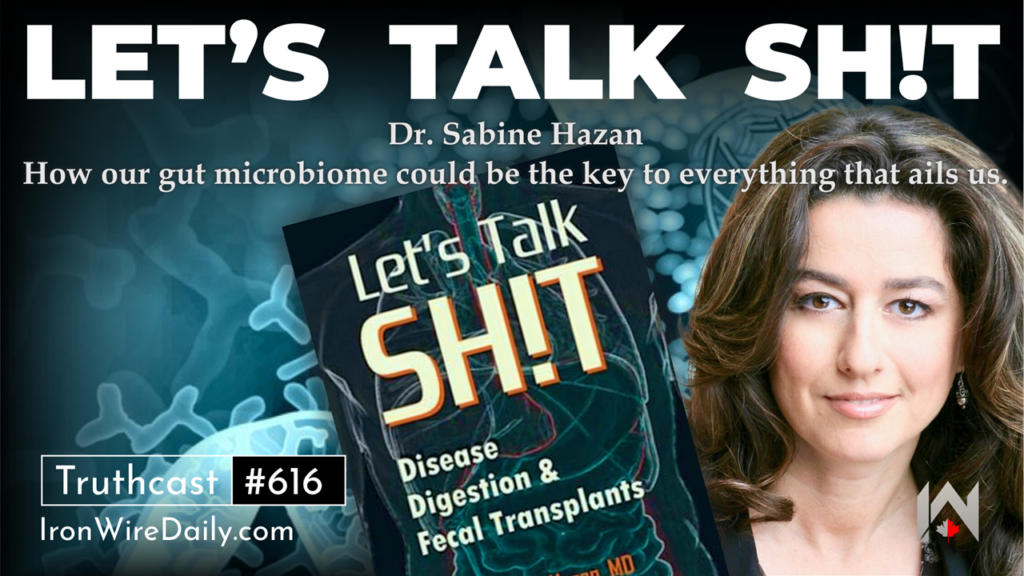

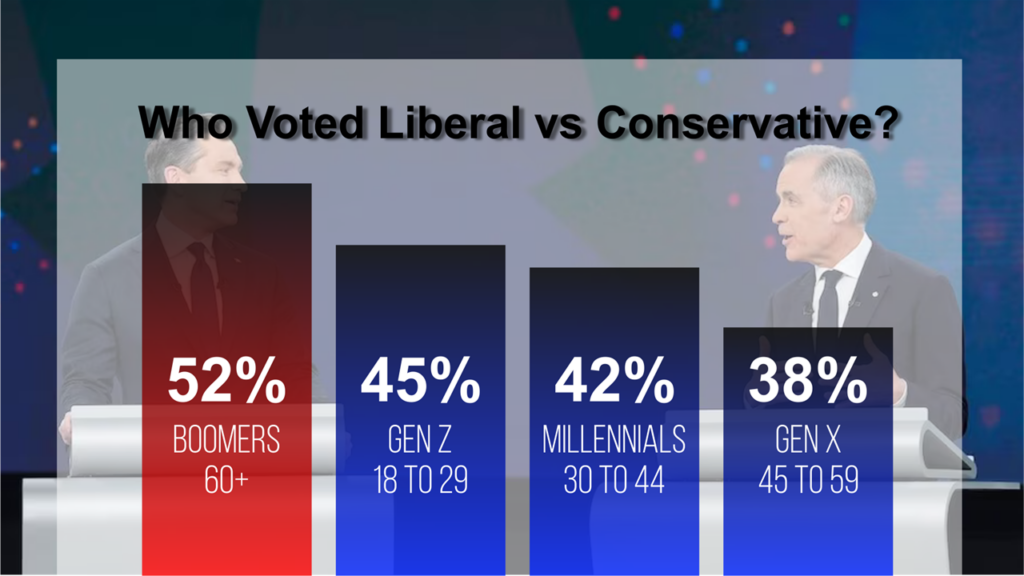

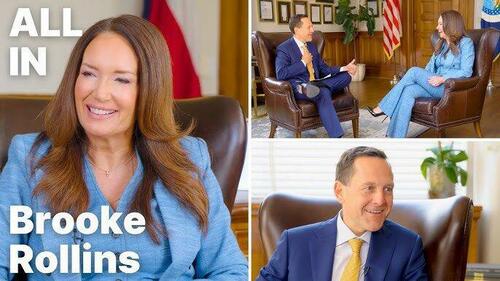





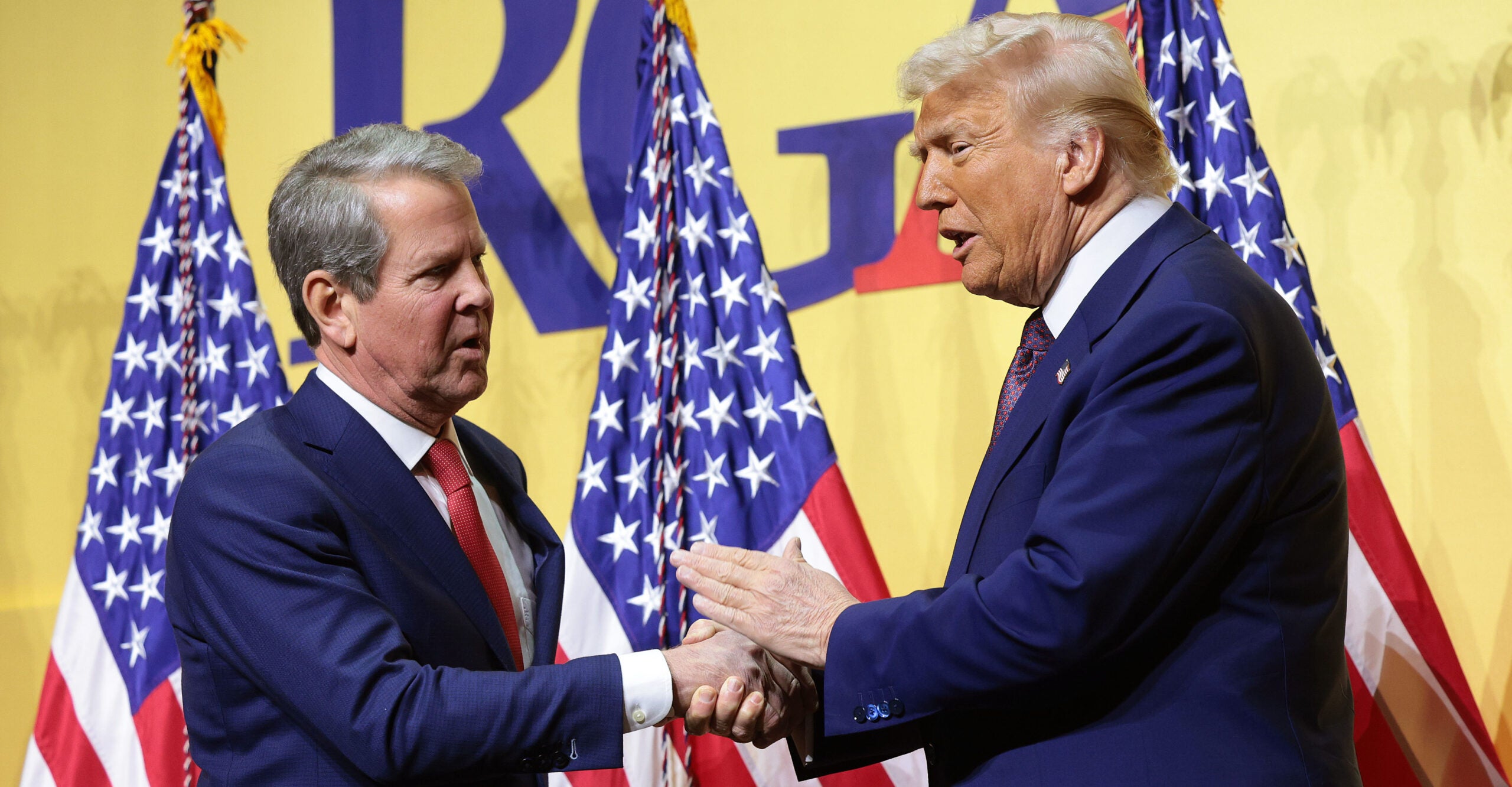


Awesome Interview!!! I will Share!!!